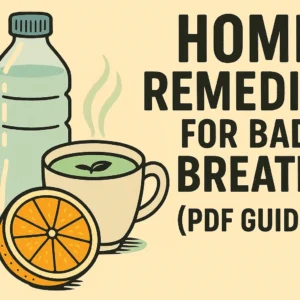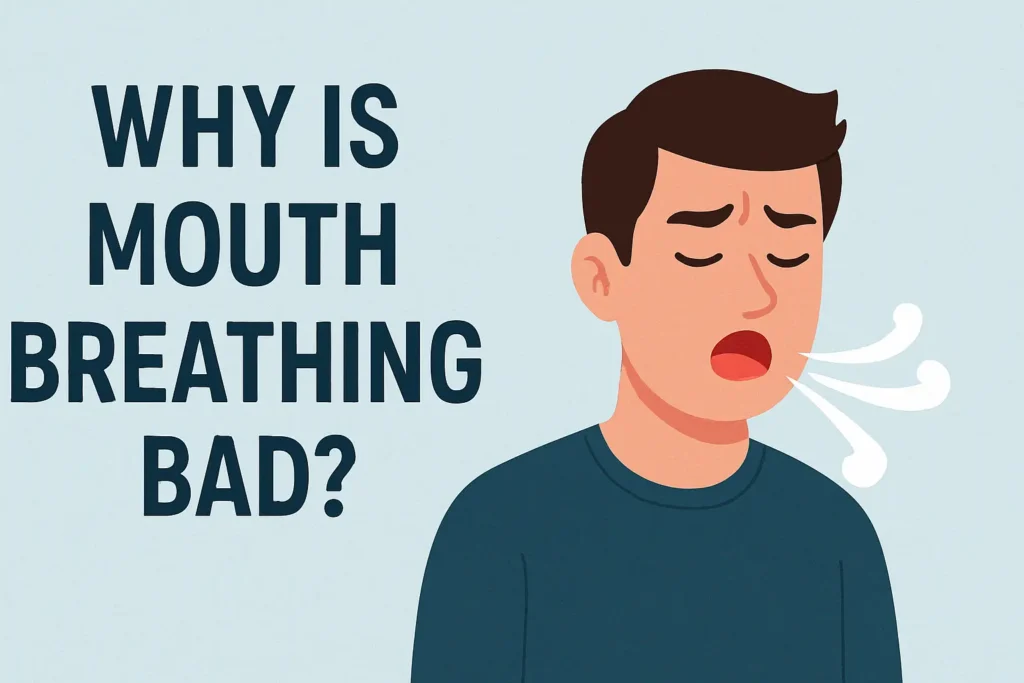Mouth Breathing Can Cause Bad Breath
Mouth breathing might seem harmless, especially if it’s occasional. For example when you have a stuffy nose. However, chronic mouth breathing can have several negative effects on your health and oral hygiene. One of the often-overlooked consequences is its connection to bad breath (halitosis). But why is mouth breathing bad, and how does it affect your breath?
How Mouth Breathing Harms Oral Health
1. Dry Mouth (Xerostomia)
One of the biggest issues with mouth breathing is that it causes dry mouth. When you breathe through your nose, the air is filtered and humidified. Mouth breathing, on the other hand, allows unfiltered, dry air to enter your mouth, which reduces saliva flow.
Saliva plays a crucial role in keeping your mouth clean by:
- Washing away food particles
- Neutralizing acids
- Controlling bacterial growth
When saliva levels drop due to mouth breathing, bacteria and plaque build up faster, leading to bad breath, tooth decay, and gum disease.
2. Increased Bacteria Buildup
Mouth breathing creates an environment where anaerobic bacteria—the type responsible for foul odors—can flourish. These bacteria produce volatile sulfur compounds (VSCs), which are the main culprits behind persistent bad breath.
3. Impact on Oral Structures
Chronic mouth breathing can also alter your facial structure, cause misalignment of teeth, and lead to gum recession. All of these factors can further contribute to oral health issues and bad breath over time.
Other Health Impacts of Mouth Breathing
Beyond bad breath, mouth breathing is linked to several health concerns, including:
- Sleep disturbances like snoring and sleep apnea
- Decreased oxygen intake, which may affect concentration and energy
- Dental issues, such as cavities and gum inflammation
- Sinus and throat infections, due to unfiltered air entering the body directly
How to Prevent Mouth Breathing and Its Effects on Bad Breath
If you suspect you are a chronic mouth breather, here are some ways to manage and prevent its side effects:
- Address nasal blockages: See an ENT specialist to treat allergies, deviated septum, or chronic congestion.
- Practice nasal breathing exercises to strengthen the habit of breathing through your nose.
- Use humidifiers to add moisture to dry air, especially while sleeping.
- Stay hydrated to combat dry mouth.
- Maintain excellent oral hygiene, including brushing, flossing, and using mouthwash to control bacterial buildup.
- Consult a dentist or orthodontist if mouth breathing has caused dental complications.
Conclusion
Mouth breathing is more than just an uncomfortable habit, it can negatively impact your oral and overall health. Chronic mouth breathing leads to dry mouth and fosters bacterial growth, making it a significant contributor to bad breath. If you experience chronic mouth breathing, addressing the root cause can help you keep your breath fresh.


